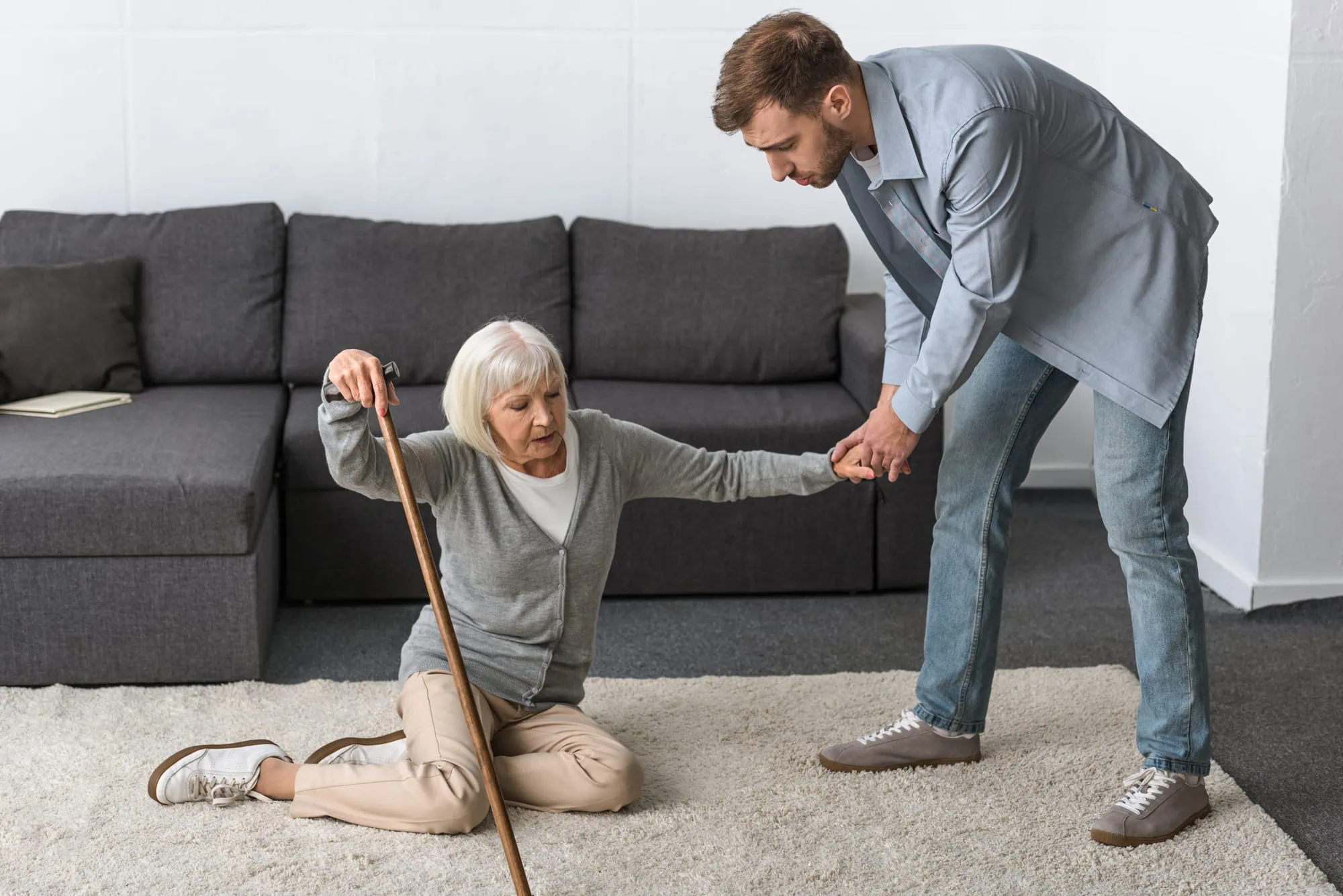
Seniors and Falls: Strategies for Enhanced Safety and Well-Being
Falls among seniors are an ongoing concern, often signaling frail health or the need for additional support, such as moving into an assisted living community. Nearly 3 million seniors visit an ER every year with an injury from falling, according to the CDC. Many of those injuries result in broken bones or head injuries such as concussions.
With proactive measures such as physical therapy, medication management, and assistive devices, injuries can be prevented, allowing seniors to maintain their mobility and quality of life.
Let’s delve into the various factors contributing to falls among seniors and explore practical strategies for fall prevention.
Understanding Fall Risks Among Seniors
Falls among seniors are common and can have serious consequences, including fractures, head injuries, and loss of mobility. According to the Centers for Disease Control and Prevention (CDC), falls are the leading cause of fatal and nonfatal injuries among older adults, with one in four seniors aged 65 and older experiencing a fall each year.
Recognizing Warning Signs and Risk Factors
Several factors contribute to the increased risk of falls among seniors, including:
- Frail Health: Seniors with frail health, decreased muscle strength, and impaired balance.
- Medications: Certain medications, such as sedatives, antidepressants, and antihypertensives, can cause dizziness, drowsiness, and impaired coordination.
- Chronic Conditions: Conditions such as diabetes, arthritis, and cardiovascular disease can affect mobility and balance.
- Environmental Hazards: Cluttered walkways, inadequate lighting, slippery surfaces, and uneven flooring pose significant safety hazards for seniors.
The Role of Physical Therapy in Preventing Falls
Physical therapy plays a crucial role in fall prevention among seniors by improving strength, balance, and flexibility. Physical therapists assess seniors' mobility and develop personalized exercise programs to address specific areas of weakness and reduce fall risk. These exercises may include:
- Strength training to improve muscle mass and bone density
- Balance exercises to enhance stability and coordination
- Flexibility exercises to improve range of motion and reduce stiffness
Regular physical therapy sessions allow seniors to regain confidence in their mobility and reduce their risk of injuries.
Medication Management and Health Monitoring
Healthcare professionals, including doctors and pharmacists, play a vital role in assessing fall risk among seniors. They should review seniors' medications regularly, paying attention to side effects that may increase the risk of falls, such as dizziness or drowsiness.
Assistive Devices: Enhancing Safety and Independence
Assistive devices such as grab bars, handrails, raised toilet seats, and shower chairs can significantly reduce the risk of falls by providing stability and support in accident-prone areas.
Mobility aids such as walkers, canes, and wheelchairs enable seniors to move around safely and independently, reducing their reliance on others and enhancing their quality of life.
Important to note:
- Regular physical therapy sessions can improve strength, balance, and flexibility.
- Healthcare professionals should review seniors' medications regularly and monitor their blood pressure and chronic conditions.
- Assistive devices such as grab bars, handrails, and mobility aids play a crucial role in enhancing safety and independence for seniors.
Consider Present Moments Senior Living
As our loved ones age, their safety and health become increasingly significant concerns. Falls pose substantial risks to seniors' well-being and independence.
By investing in comprehensive fall prevention strategies, we not only reduce the likelihood of injuries but also promote independence and overall wellness.
If you are seeking a senior living community that prioritizes safety and compassionate care, we encourage you to reach out to to us at Present Moments Senior Living. Comfort, well-being and safety are our primary concerns.
Call us at (442) 232-2824 with any questions.

